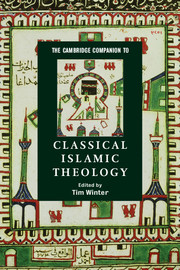10 - The existence of God
from Part II: - Themes
Published online by Cambridge University Press: 28 June 2008
Summary
WHENCE THE NEED FOR PROOF?
The problem of whether or not belief in God should be founded in reason has a complex history in Islam. Both kalām exponents and philosophers showed a keen interest in advancing arguments for the existence of God, which was born of diverse motives, chiefly the need to establish this most crucial doctrine within their broader metaphysical systems, to respond to physicalist atheism, and to support and enrich the belief and piety of believers. Yet the epistemological view that rational proof is needed to recognise the existence of God was not held universally: while some propounded discursive reasoning, others advocated fundamentally non-rational “methods” (sing. tarīqa) to this end, such as spiritual discipline, said to provide direct, experiential knowledge of God. Some, moreover, maintained that only one correct method should be followed exclusively, whereas others allowed for a hierarchy of different methods. Related to this was the question of whether lay people must follow essentially the same route as theologians, or whether, if they are incapable of doing so, they may adhere to simple, uncritical belief instead. Let us first briefly consider some historical solutions to this complex of questions.
- Type
- Chapter
- Information
- The Cambridge Companion to Classical Islamic Theology , pp. 197 - 217Publisher: Cambridge University PressPrint publication year: 2008
- 11
- Cited by

